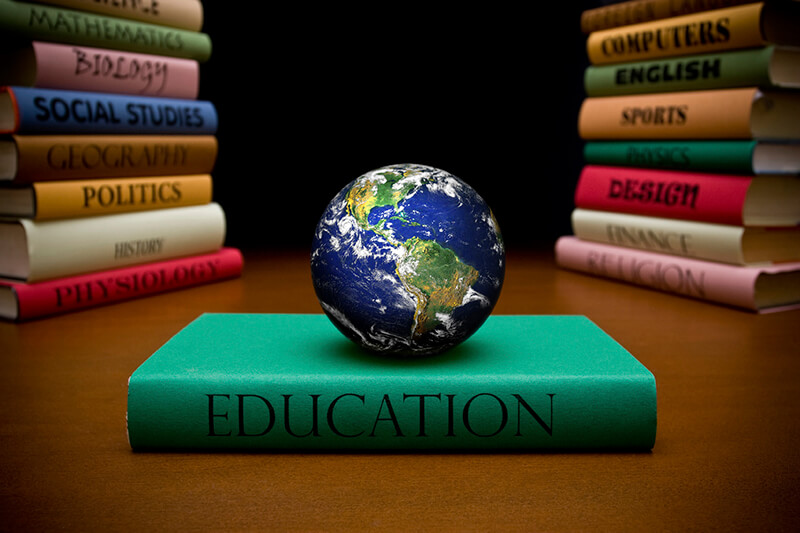The Cornerstone of Commitment: Understanding Your Marriage Certificate
Marriage is a significant life event, marking the union of two individuals and the start of a new chapter together. While the ceremony itself holds deep personal and emotional meaning, the legal recognition of the marriage is formalized by a crucial document: the marriage certificate. Far more than just a keepsake, the marriage certificate is a vital legal record that serves as official proof of your marital status, opening the door to numerous rights, benefits, and administrative processes.
Toc
For many couples, the journey to obtaining their marriage certificate involves several steps, starting with applying for a marriage license. It’s a process that varies depending on location – whether it’s a specific state or county within a country, or different regulations in various nations around the world. Understanding this process, knowing why the marriage certificate is so important, and knowing how to obtain or replace it is essential knowledge for any married individual or couple. This document underpins fundamental aspects of married life, from changing your name to navigating legal and financial matters as a married couple.
In this comprehensive guide, we will explore everything you need to know about the marriage certificate. We’ll define exactly what this document is and why it holds such significant legal weight, walk through the typical process of obtaining one after your marriage ceremony, and discuss practical considerations like getting certified copies, replacing a lost certificate, and how this document is used for international purposes. By the end of this article, you’ll have a clear understanding of why your marriage certificate is such a critical document and how to manage it effectively throughout your married life. Whether you’re planning a wedding, recently married, or need to access your record from years past, grasping the importance and mechanics surrounding the marriage certificate is invaluable.
What is a Marriage Certificate and Why is it Essential?
Before diving into the process of getting one, it’s crucial to understand precisely what a marriage certificate is and its fundamental role in recognizing a marriage legally. It’s often confused with another related document, the marriage license, but they serve distinct purposes.

Defining the Marriage Certificate vs. Marriage License
The journey to a marriage certificate typically begins with obtaining a marriage license. Think of the marriage license as the permission from a governmental authority (like a county clerk or civil registrar) for two people to get married. It’s an application process where the couple provides necessary identification and information to prove they are legally eligible to marry according to the laws of the jurisdiction. This license is usually valid for a specific period (e.g., 60 or 90 days), and the marriage ceremony must take place within that timeframe. The marriage license is presented to the officiant performing the ceremony.
The marriage certificate, on the other hand, is the official record and proof that the marriage ceremony has actually occurred and has been legally registered with the relevant governmental authority. After the wedding ceremony, the officiant (and often witnesses) signs the marriage license, certifying that the marriage has been performed. This signed license is then returned to the issuing authority. The authority then records the marriage in the official public records and issues the formal marriage certificate. So, while the license grants permission to marry, the certificate confirms that the marriage did happen and is legally recognized by the state or country. It is the marriage certificate that you will use as proof of your marital status for almost all legal and administrative purposes throughout your life.
The Legal Weight and Importance of Your Marriage Certificate
The marriage certificate is far more than a ceremonial paper; it is a foundational legal document. Its importance cannot be overstated, as it serves as the primary evidence that two individuals are legally joined in marriage. Without a valid, registered marriage certificate, many legal rights, benefits, and processes associated with marriage cannot be accessed or completed.
One of the most common and immediate uses of a marriage certificate is for a name change. If one or both spouses choose to change their last name after marriage, the marriage certificate is the required document to update identification such as driver’s licenses, passports, social security cards, bank accounts, and other official records. Without the certificate, proving the legal basis for the name change is impossible.
Beyond name changes, the marriage certificate is essential for navigating numerous legal and financial aspects of life as a married couple. It is required to:
- File joint tax returns, potentially accessing tax benefits available to married couples.
- Add a spouse to health insurance, life insurance, or other benefit plans.
- Establish spousal rights for pensions, social security benefits, or military benefits.
- Address inheritance matters and probate in the event of a spouse’s death. The certificate proves the legal relationship to claim spousal inheritance rights.
- Initiate divorce or annulment proceedings, as proof of the existing marriage is necessary to dissolve it legally.
- Apply for joint loans, mortgages, or other financial products.
- Make medical decisions for an incapacitated spouse, depending on local laws and power of attorney documents, the certificate can help establish legal standing.
- Sponsor a spouse for immigration purposes in many countries. The marriage certificate is critical evidence of a bona fide marriage.
In essence, the marriage certificate transforms a personal commitment into a recognized legal partnership, granting access to rights and responsibilities that are exclusive to married individuals. Losing or failing to obtain this document can create significant hurdles in proving your marital status when needed for these critical life events and processes.
Key Information Found on a Marriage Certificate
While the exact format and specific details may vary slightly depending on the issuing authority (state, county, country), a standard marriage certificate typically contains key information necessary to legally identify the couple and the details of the marriage. Understanding what information is included can be helpful when applying for or verifying a certificate.
1. https://lifeify.net/mmoga-the-power-of-proof-understanding-the-role-of-a-certificate/
2. https://lifeify.net/mmoga-understanding-your-birth-certificate-your-primary-identity-certificate/
4. https://lifeify.net/mmoga-the-cornerstone-document-understanding-your-birth-certificate/
5. https://lifeify.net/mmoga-accelerated-bsn-degree-programs-in-california-your-fast-track-to-nursing/
Common elements found on a marriage certificate include:
- Full Legal Names of Both Spouses Before Marriage: This is crucial for identification and tracking records.
- Full Legal Names of Both Spouses After Marriage: Reflecting any immediate name changes intended upon marriage.
- Dates of Birth for Both Spouses: Used for identification and verification purposes.
- Places of Birth for Both Spouses: Another identifier for official records.
- Current Addresses of Both Spouses: Recorded at the time of the marriage.
- Date of the Marriage Ceremony: The exact date the marriage was solemnized.
- Location of the Marriage Ceremony: Including the city, county, and state or country where the marriage took place.
- Full Name and Title of the Officiant: The person legally authorized to perform the marriage ceremony (e.g., minister, judge, justice of the peace). Their signature is required.
- Names and Signatures of Witnesses: Depending on the jurisdiction, one or two witnesses may be required to sign the certificate, attesting that they observed the ceremony.
- Date of Registration: The date the marriage was officially recorded by the governmental authority.
- Certificate or File Number: A unique identifier assigned by the issuing authority for tracking the record.
- Seal of the Issuing Authority: An official stamp or seal that authenticates the document as a true and valid record.
This information collectively provides a clear, verifiable, and legal record of the marriage event. When requesting certified copies, ensuring all this information is accurately reflected on the document is important. The presence of the official seal is what makes a marriage certificate legally valid for most official purposes, distinguishing it from a commemorative certificate.
How to Obtain Your Marriage Certificate
Getting married involves more than just the ceremony; it’s also about ensuring the legal process is correctly followed so you can receive your official marriage certificate. The steps are relatively straightforward but require attention to detail and awareness of local procedures.
The Steps from Marriage License to Certificate
The process typically begins before the wedding ceremony with the application for a marriage license. This is usually done in person at a local government office, such as the County Clerk’s office in the United States, or a similar civil registration office in other countries. Couples will need to provide identification, proof of age, and potentially other documents depending on local laws (e.g., divorce decrees if previously married). There is usually an application fee.
Once the marriage license is issued, there might be a waiting period before the ceremony can take place, varying from 24 hours to several days, depending on the jurisdiction. The marriage ceremony must then be performed within the validity period of the license.
During the ceremony, the officiant and typically one or two witnesses will sign the marriage license in the designated areas. This act certifies that the marriage ceremony has occurred according to the license.
The critical next step, and one that is often the responsibility of the officiant but that the couple should confirm, is returning the signed marriage license to the issuing governmental authority. This must be done within a specific timeframe after the ceremony (e.g., within 10-30 days). This return and filing process is what legally registers the marriage in the official records.
After the signed license is successfully filed and the marriage is registered, the governmental authority will issue the official marriage certificate. In some places, a standard, non-certified copy might be mailed automatically. However, for most legal purposes, you will need a certified copy of the marriage certificate, which bears the official seal or stamp of the issuing office. This certified copy is the document you will use for name changes, benefits, etc.
Understanding the specific requirements and waiting periods in the jurisdiction where you plan to marry is vital to a smooth process. Requirements can vary significantly. Common requirements when applying for a marriage license include:
- Identification: Valid government-issued photo ID (driver’s license, passport).
- Proof of Age: Usually, you must be at least 18 years old, but some places allow younger individuals with parental consent or court approval. Birth certificates might be required.
- Residency: Some jurisdictions require one or both parties to be residents, although many do not.
- Previous Marriages: If either party has been previously married, they will likely need to provide a certified copy of the divorce decree or death certificate of the former spouse to prove the previous marriage has legally ended.
- Blood Tests: While less common now, some places may still require blood tests for certain conditions.
- Fees: There is always an application fee for the marriage license.
Waiting periods also vary. As mentioned, there might be a waiting period after getting the license before the ceremony, and also a timeframe within which the signed license must be returned after the ceremony to ensure the marriage is registered and the marriage certificate can be issued. Failing to meet these deadlines can complicate the process and delay or prevent the issuance of the official marriage certificate. It is highly recommended to check the specific requirements and timelines with the local issuing office well in advance of the wedding date.
Obtaining Certified Copies of Your Marriage Certificate
Once your marriage is registered and the official record exists, you will almost always need to obtain certified copies of the marriage certificate for various legal and administrative tasks. A certified copy is an official duplicate issued by the governmental authority that holds the original record, authenticated with their official seal or stamp. Standard photocopies or commemorative certificates are generally not accepted as legal proof of marriage.
The process for obtaining certified copies typically involves contacting the vital records office in the jurisdiction where the marriage took place. This could be a county clerk’s office, a state Department of Health’s vital statistics division, or a national civil registry.
You will usually need to provide:
- Information about the marriage (names of both spouses, date and location of marriage).
- Your contact information and mailing address.
- Reason for the request (sometimes required).
- Proof of identity (to ensure you are entitled to receive a copy).
- Payment for the fee per certified copy.
Requests can often be made in person, by mail, or online through the issuing authority’s website or a third-party service authorized by the government. Processing times can vary widely, from immediate in-person issuance to several weeks for mail or online requests, especially during busy periods. It is often advisable to order multiple certified copies right after your marriage, as you will likely need them for changing your name on various documents, updating benefits, etc. Having several on hand saves you the trouble of requesting them individually over time.
1. https://lifeify.net/mmoga-the-power-of-proof-understanding-the-role-of-a-certificate/
3. https://lifeify.net/mmoga-finding-the-best-speech-language-pathology-degree-programs-online/
5. https://lifeify.net/mmoga-accelerated-bsn-degree-programs-in-california-your-fast-track-to-nursing/
Managing Your Marriage Certificate: Replacements, Translations, and International Recognition
Your marriage certificate is a document you will likely need to access throughout your married life. Knowing how to handle situations like losing it, needing it for use overseas, or simply understanding its various applications beyond the initial post-wedding tasks is important for effective management.

Replacing a Lost or Damaged Marriage Certificate
Losing or damaging important documents can be stressful, and your marriage certificate is no exception. Fortunately, obtaining a replacement is usually a straightforward process, though it requires contacting the correct authority.
If you need to replace a lost or damaged marriage certificate, you will need to contact the vital records office in the specific county or state (or country) where your marriage license was originally issued and registered. This is the only office that holds the original record and is authorized to issue certified copies.
The process for requesting a replacement certified copy is generally the same as requesting initial copies:
- Identify the correct office: Determine the county/state/country where you were married.
- Visit their website or contact them: Find their procedures for requesting certified copies of marriage certificates.
- Gather required information: You’ll need the full names of both spouses at the time of the marriage, the date of the marriage, and the location (city/county).
- Provide identification: You will need to prove your identity as one of the individuals named on the certificate.
- Submit the request: This can typically be done online, by mail, or in person.
- Pay the fee: There is a fee for each certified copy requested.
Processing times for replacement copies are the same as for initial copies and depend on the volume of requests the office is handling. Planning ahead if you know you will need a replacement by a specific date is always wise. Keeping digital or physical copies of your certificate information (like the certificate number) in a safe place can make requesting replacements easier if the original is ever lost.
Understanding Apostilles and Legalization for International Use
If you plan to use your marriage certificate in a country different from the one where the marriage took place (e.g., for immigration, establishing residency, or other legal matters abroad), you will likely need more than just a standard certified copy. You will need to get the document authenticated for international recognition. This process is known as obtaining an Apostille or Legalization, depending on the countries involved.
- Apostille: An Apostille is a form of authentication issued to documents for use in countries that participate in the Hague 1 Convention Abolishing the Requirement of Legalisation for Foreign Public Documents (the Apostille Convention). 2 If both the country where the marriage occurred and the country where the certificate will be used are members of this convention, an Apostille from the issuing country’s designated authority is sufficient to legalize the document for use in the destination country. The authority issuing Apostilles is usually the Secretary of State’s office (in the US) or the equivalent Ministry of Foreign Affairs.
1. lowellbusiness.com2. www.lawgazette.co.uk
- Legalization: If either country is not a member of the Hague Convention, a more complex process called Legalization or Attestation is required. This typically involves multiple steps, including notarization (if applicable), authentication by a state or national authority, and then further authentication by the consulate or embassy of the destination country located in the country where the certificate was issued.
The process for obtaining an Apostille or Legalization involves submitting your certified marriage certificate to the appropriate authority along with required forms and fees. It’s crucial to determine exactly which process is needed by checking the requirements of the country where you plan to use the certificate. The marriage certificate itself must be a certified copy from the original issuing source before you can apply for an Apostille or Legalization. This step adds an extra layer of official verification, making your marriage certificate legally valid and recognized across international borders.
Common Reasons You’ll Need Your Marriage Certificate (Beyond the Wedding Day)
Beyond the immediate tasks following a wedding, your marriage certificate is a document you will likely need to present throughout your life for a variety of reasons. Keeping it in a safe, accessible place is therefore very important.
Here are some common situations where you will need your certified marriage certificate:
- Changing Your Name: As mentioned, this is the most frequent immediate need. You’ll need it for updating your driver’s license, passport, social security card, bank accounts, credit cards, and utility bills.
- Updating Insurance Policies: Adding a spouse to health, life, car, or home insurance policies.
- Applying for Benefits: Establishing eligibility for spousal benefits from Social Security, pensions, veterans affairs, or employer benefit programs.
- Tax Purposes: Filing joint tax returns requires proof of marriage status.
- Real Estate Transactions: When buying or selling property jointly as a married couple.
- Legal Proceedings: Required for divorce or annulment proceedings, or for legal separation. Also needed in some court cases involving family matters.
- Estate Planning and Probate: Proving your marital relationship for wills, trusts, and inheritance claims after a spouse’s death.
- Immigration and Visa Applications: Sponsoring a foreign spouse for residency or citizenship requires the marriage certificate as primary evidence of the relationship.
- Applying for Loans or Mortgages: Some financial institutions may require proof of marriage for joint applications.
- Establishing Paternity: In some legal contexts related to children born during the marriage.
The marriage certificate acts as your official credential confirming your married status, a status that impacts numerous legal, financial, and personal aspects of life. Treating it as an important, irreplaceable document and knowing how to obtain certified copies when needed is key to smoothly navigating these various life events.
In conclusion, the marriage certificate is a fundamental legal document that formalizes your marriage and provides essential proof of your marital status. From allowing name changes and accessing spousal benefits to navigating international residency or managing legal affairs, its importance is undeniable. Understanding the process of obtaining it, keeping it safe, and knowing how to get certified copies or international authentications ensures you are prepared for all the times this vital record will be required throughout your journey as a married couple. It is truly a cornerstone of your legal union.











